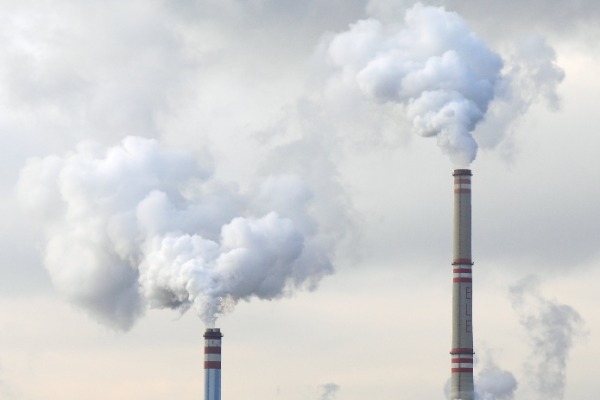Fossil fuel has played a crucial role in shaping the modern world as we know it. Ever since coal was first used to generate electricity in the 1880s, it has become part of daily human life. Today, fossil fuels still supply roughly 80% to 85% of the world’s energy.
As important as fossil fuels have been to society’s development, however, they come at a steep price. It’s no secret that burning fossil fuels releases high amounts of carbon dioxide and other greenhouse gases into the atmosphere, contributing to the acceleration of global warming. Apart from their environmental impact, CO2 emissions and other fossil fuel by-products can also cause or exacerbate serious health conditions for people around the world.
Because of this, governments around the world have ramped up efforts to cut back on their fossil fuel dependence and support the transition to renewables. Some private companies – including even established oil and other fossil fuel producers – have also pledged to reduce their own CO2 emissions.
With the world shying away from non-renewable energy sources, are we finally seeing the end of the fossil fuel era?
Challenging Big Oil to commit to carbon emission reductions

The United Nation’s Race to Zero campaign calls on world and city governments to commit to reducing their carbon emissions. It also urges private companies to cut greenhouse gas emissions from their businesses.
One section of the economy that is considered key to the UN’s net zero plan is the oil industry. About a third of all energy-related CO2 emissions over the past five decades came from 20 fossil fuel companies.
If these firms commit to cutting their greenhouse gas emissions, it will help fast-track the world’s net zero goals significantly.
However, getting Big Oil to support the Race to Zero campaign hasn’t been easy. While major oil companies like BP, Royal Dutch Shell, and Total have announced their net zero goals, other firms still haven’t.
Many of these companies are concerned about how committing to CO2 emission reductions could potentially effect their bottom lines. They have faced plenty of harsh criticism from the public and even their own investors for their tepid response. A few recent events show how the tide of electrification is sweeping over even some of the world’s biggest polluters.
Dutch court orders Shell to increase net zero targets further
In May, a Dutch court ordered Shell to deepen its planned greenhouse gas emission cuts. Judge Larisa Alwin told the company that it needs to reduce its emissions by 45% by 2030 relative to 2019 levels.
Earlier this year, Shell announced its strategy to reduce CO2 emissions. The company said it would cut the carbon intensity of its products by at least 6% by 2023. This was to be followed by further cuts of 20% by 2030, 45% by 2035, and 100% by 2050. Those targets are relative to 2016 levels.
However, the court found that Shell’s climate policy was “not concrete” and “full of conditions”.
“The conclusion of the court is therefore that Shell is in danger of violating its obligation to reduce. And the court will therefore issue an order upon [Shell],” Judge Alwin said.
The ruling comes after Shell CEO Ben van Beurden had already shot down the idea of absolute reduction targets for the company at the company’s annual meeting.
“Reducing absolute emissions at this point in time is predominantly possible by shrinking the business,” Van Beurden said at the time.
Shell is appealing the ruling, but it seems that view may need to change.
ExxonMobil shareholders force major change in Board of Directors
Meanwhile, ExxonMobil is facing drastic changes to its leadership. Shareholders recently voted to install at least two independent directors to the Board. This was a major blow to CEO Darren Woods, who had tried to win seats for his proposed directors.
Industry observers believe the development reflects shareholders’ dissatisfaction with how ExxonMobil has been addressing climate change.
Fred Krupp, president of the Environmental Defense Fund, said the voting “sends an unmistakable signal that climate action is a financial imperative, and leading investors know it and are demanding change.”
“This is a watershed moment for the oil and gas industry. It’s no longer tenable for companies like ExxonMobil to defy calls to align their businesses with decarbonizing the economy.”
Chevron investors back proposal for CO2 emissions reduction
Shareholders at Chevron also made their voices heard by voting in support of carbon emission reductions.
At the company’s annual investor meeting, the majority (61%) of voters backed a proposal to cut CO2 emissions from use of the company’s products. This was a clear rebuffing of Chevron’s Board, whose members had urged shareholders to reject the plan.
The development at Chevron is another sign that shareholders aren’t going to take climate inaction lying down anymore. More investors are starting to use their money and influence to force significant changes in corporate climate policies.
Chevron CEO Mike Wirth said the company should be able to increase returns to investors as it strives to cut CO2 emissions and engages with shareholders to seek solutions.
“Across our society and all stakeholders, interest in these issues has never been higher and I think the vote reflects that,” Wirth said.
‘Duty of care’ for Government Officials

Private companies aren’t the only ones taking the heat for their lacklustre support of climate action. Government officials also face the challenge of mitigating the impact of global warming.
In Australia, a group of citizens recently sought an injunction to prevent Environment Minister Sussan Ley from approving a coal mine expansion. They argued that Ley had the responsibility to protect younger people against future harm from climate change.
Justice Mordecai Bromberg found Ley had a duty of care not to act in a way that would cause future harm to younger people, but he did not grant the petition for an injunction. The Justice was not satisfied that the minister would breach this duty.
Despite the absence of an injunction, the plaintiffs welcomed the court’s decision for its potentially significant consequences. The ruling is considered the first time that such a duty of care has been recognised.
The ruling comes after the International Energy Agency urged countries like Australia to drop their coal and gas plans. This is needed if these countries are to meet their net zero targets by 2050.
Is this the end of the Fossil Fuel Era?
As the health and environmental impacts of fossil fuels have become abundantly clear, there’s no longer any doubt that if the world is to move forward, countries must switch to renewable energy sources. As recent news demonstrates, even some of the world’s unlikeliest climate allies are starting to recognise this fact.
Solar power and other renewable technologies have advanced significantly over the past few years, becoming a viable and often cheaper alternative to fossil fuels.
More consumers and even businesses are also choosing electric vehicles over petrol or diesel cars for their fleets. Most EVs, such as the ones from Tembo e-LV, are 100% battery-operated, making them zero emission vehicles.
Achieving a true zero carbon world will require every nation and business to commit to net zero carbon emissions. These recent stories highlight the growing demand from courts, investors, and the public for companies and nations to pursue decarbonisation more urgently than ever before.
